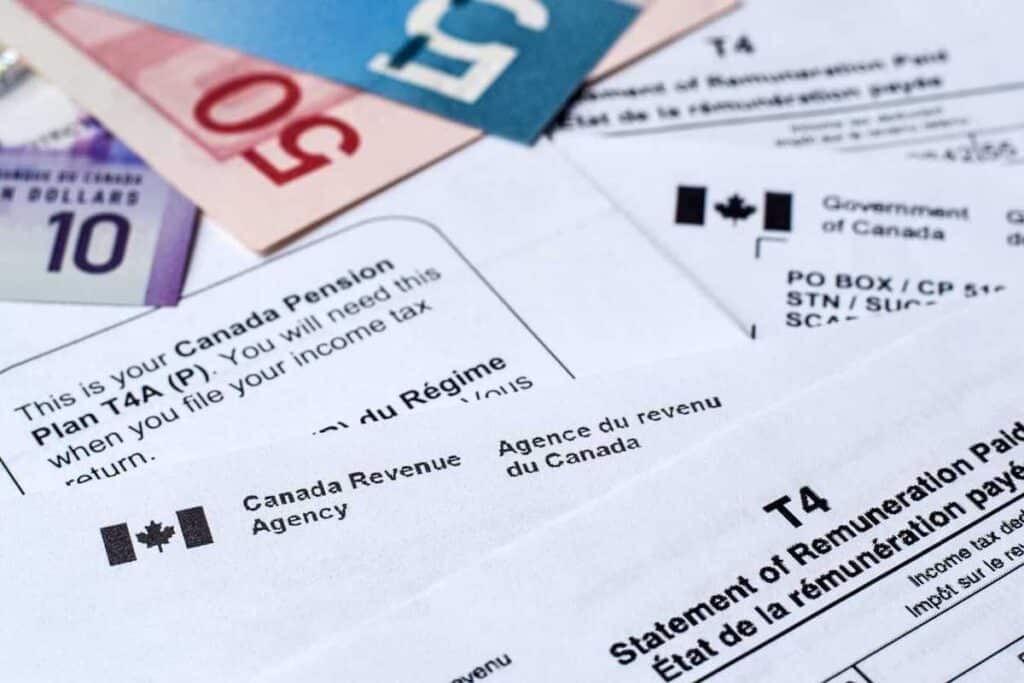Workers and income earners in Canada will have until April 30, 2024 to file their taxes for the 2023 tax year. For many international newcomers and graduates to Canada, it may be the first time they have done so.
While file tax return (also called “doing your taxes”) may seem like a disadvantage to some, the benefits often far outweigh any potential drawbacks to reporting income. This article will cover some of the benefits that new taxpayers in Canada can access.
Click here to consult a tax expert today
Receive a tax refund
Many salaried taxpayers in Canada will be eligible for a tax refund when filing their income taxes. This tax refund represents money that people can receive from the government for overpaying their taxes during the tax year.
A tax refund can also be generated after a review of tax credits, deductions and expenses, which occurs when filing returns. Tax credits refer to money the government can provide based on an individual’s eligibility for different programs (more on this later).
Deductions refer to amounts that can be subtracted from your income when filing tax returns to reduce the amount owed. Finally, expenses are the total amount of taxes owed by an individual (in fact, the opposite of a refund), which generally occurs if taxes are not paid sufficiently throughout the year.
Credits and benefits
In addition to receiving a tax refund, taxpayers in Canada also enroll in various credit and benefit programs (depending on their eligibility) when filing their taxes each year.
Some examples of these credits include:
- The Goods and Services Tax/Harmonized Sales Tax (GST/HST) credit: a quarterly tax-free payment that helps individuals and families with low and modest incomes offset the GST or HST they pay;
- Canada’s workers benefit: a refundable tax credit to help working, low-income individuals and families;
- The Canada Training Credit: A refundable tax credit available starting in 2020 to help individuals offset the cost of eligible training fees. Taxpayers must be at least 26 years old to be eligible to claim this credit;
- The Disability Tax Credit: A non-refundable tax credit to help people with disabilities (or the person who supports them) reduce the income tax they must pay. Eligibility for this credit may also lead to enrollment in other provincial and federal tax programs; and
- The Canada Child Benefit: A tax-free credit that is available to some families to help with the cost of raising children under 18 years of age.
The Government of Canada also runs other tax credit programs. Find your dedicated website here. Additionally, you can find a complete list of all tax deductions, credits, and expenses. here.
For a beginner’s guide to filing taxes for the first time, click here. For more information on the topic, find our dedicated webpage. here.
Additionally, the Government of Canada has created a benefits tool to help newcomers and others understand what benefits they may be entitled to. The tool also covers other social programs and can be found here.
Click here for help filing your taxes
Why choose H&R Block?
The excellent staff at H&R Block, Canada’s leading tax preparation company for over 60 years, have the experience to handle all tax situations and have over 1,000 locations from coast to coast.
Over the past 60 years, H&R Block’s growth in Canada has been tremendous. Headquartered in Calgary, Alberta, H&R Block serves taxpayers in more than 1,000 offices nationwide. H&R Block’s dedicated team of tax experts uses the latest in electronic filing and processing technology to prepare all types of returns, including personal, small business, corporate, agricultural, trucking, fishing, U.S., rental, and income tax returns. estate. With offices located in North America and 13 foreign countries, H&R Block can prepare tax returns for all Canadians, no matter where they are located.
reference: www.cicnews.com
